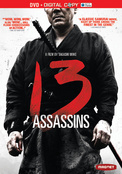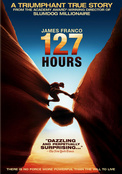 |
2 Fast 2 Furious (2003) |
 |
3 Extremes (Hong Kong - 2004) |
 |
3-Iron (2005) |
 |
9 Deaths of the Ninja (1985) |
 |
*Classic*
12 Angry Men (1957) |
 |
12 Monkeys (1995) |

|
13 Assassins (Japan - 2010) |
 |
13 Tzameti (2005) |
 |
The 13th Warrior (1999) |
 |
15 Minutes (2001) |
 |
16 Blocks (2006) |
 |
24 Hour Party People (2000) |
|
25th Hour (2002) |
 |
28 Days Later (2003) |
 |
32 Short Films About Glenn Gould (1994) |
 |
*Classic* The 36th Chamber of Shaolin
(Shaolin Master Killer) (1978) |
 |
The 40-Year-Old Virgin (2005) |
 |
48 Hrs. (1982) |
 |
102 Dalmatians (2000) |

|
127 Hours (2010) |
|
|
300 (2007) |
 |
1408 (2007) |
 |
1941 (1979) Starring: John Belushi, Dan Aykroyd Director: Steven Spielberg Plot: Days after Pearl Harbor, a Japanese sub is spotted off the coast of California and sends panic throughout L.A., while bumbling army officials and suburbanites try to fend off the perceived threat. Review: Spielberg's worst movie, by far; starts off with a spoof of Jaws, and goes down-hill from there. The film's biggest attraction are scene after scene of large-scale gratuitous chaos and explosions, making a mess of the stages and whatever story might have been hidden here, probably to liven-up the otherwise slow pacing. The huge cast of characters, many played by famous actors who took two-bit parts in the film (including Toshiro Mifune and Christopher Lee) is interesting at first, but quickly loses its charm. John Belushi does his usual gross, silly character imitation, but it's not enough. 1941 tries to be a great big slapstick comedy, like an updated version of The Russians Are Coming, The Russians Are Coming! mixed with Animal House, but ends up being a boring, expansive one that is only mildly amusing. Comedy: 2/10 Entertainment: 3/10 |
 |
2000 A.D. (Hong Kong - 2000) Starring: Aaron Kwok, Phyllis Quek, James Lye Director: Gordon Chan Plot: A carefree teenager whose life revolves around playing video games, is drawn into an international spy conspiracy after his brother is falsely accused of treason. Review: This silly high-tech spy-thriller shows off the higher production values of the "new wave" of Hong Kong films starting to come out: slick, stylish, and using big-budget computer effects. The "video-geek-saves-the-world" shtick is quite unbelievable, of course, and many of the plot twists are cliché for this type of thriller, but the story and action moves along well enough that we don't really care. In fact, their are some particularly violent gun fights and effective over-the-top Hollywood-type action sequences here. Some great camera shots and decent editing occasionally lift the film up a notch, but disappointingly these touches aren't used throughout. Besides this minor point, 2000 A.D. is an entertaining and energetic piece of fluff. Action: 8/10 Entertainment: 7/10 |
|
*Classic* 2001: A Space Odyssey (1968) |
 |
2009: Lost Memories (South Korea -
2002) |

|
2012 (2009) |
 |
2046 (Hong Kong - 2005) |
 |
3000 Miles to Graceland (2001) |

|
10,000 B.C. (2008) |
|
Home
/ Latest Reviews / Review
Library |
